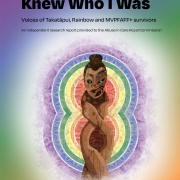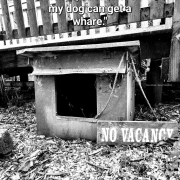“As a Kid, I Always Knew Who I Was”
Voices of Takatāpui, Rainbow and MVPFAFF+ survivors: An independent research report provided to the Abuse in Care Royal Commission
Abstract:
This report is provided for the Royal Commission so that Takatāpui, Rainbow and MVPFAFF+ survivors and their communities’ voices are upheld. It brings together content and reflections on engagements with the Commission and captures themes and key issues, as well as aspirations for meaningful change. Takatāpui, Rainbow and MVPFAFF+ people suffered many kinds of abuse in State and faith-based care settings from 1950 to 1999 and to the present day, where they should have been safe and protected from harm. More broadly, Takatāpui, Rainbow and MVPFAFF+ people have suffered marginalisation in Aotearoa, New Zealand because of the nature of our society, the dominance of Western social constructs and the legal system born of English law. However, this report intentionally focuses on expressions of Takatāpui, Rainbow and MVPFAFF+ identity without and beyond the framing of struggle, conflict, harm, abuse or trauma
Author: Paora Moyle
Citation: Moyle, P. (2023). As a Kid, I Always Knew Who I was. Voices of Takatāpui, Rainbow, and MVPFAFF+ survivors: An independent research report provided to the Abuse in Care Royal Commission. Te Whariki Manawāhine Research. Thames, Aotearoa.




